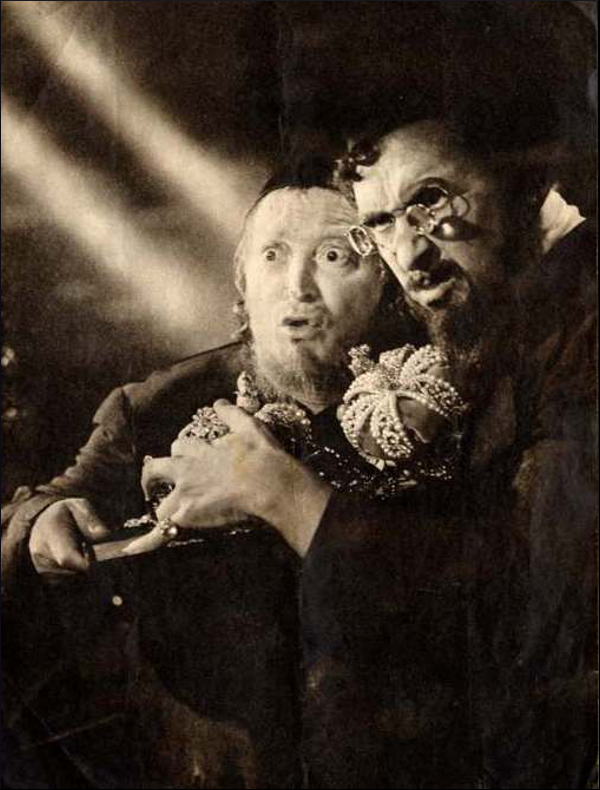In 1940, the German film company UFA released a state-commissioned movie entitled Jud Süß. This film is an example of the artistic propaganda used by the Nazis to reinforce common Jewish stereotypes. In general, this approach took the form of a story rather than methodological propaganda, since the former method tended to be better received by audiences. Loosely based on historical events, the story follows the life of Joseph Süß Oppenheimer as he develops a relationship with the Duke of Württemberg and slowly enters the realm of political influence. Though the message is quite obvious, Jud Süß became a significant financial success and continues to influence historical research from its massive social influence.
"Though the message is quite obvious, Jud Süß became a significant financial success and continues to influence historical research from its massive social influence."
From the opening scene, the story draws a clear distinction between Aryans and Jews. Jews are shown in what is supposed to be their natural environment, a cluttered, dirty, and overcrowded ghetto. The strategic camera angles make viewers feel almost claustrophobic. The camera pans to reveal a fast-paced lifestyle, as characters shout to each other from the ground floor to a second-story window. When we are presented to the Duke and his family, however, we see them dressed in sensible, clean clothing inside a large and clutter-free house.
Successful propaganda continually reiterates a few simple points until its message is second nature to its intended audience. Viewers should pay close attention to the dress attire of the characters, the language they use, and whom they surround themselves with. The rabbi is missing an eye, is accompanied by a prostitute, and speaks about taking advantage of people: “We must plan to take, take, take.” He is supposed to be a leader in the Jewish community, and in a mere few words, he is able to communicate how the creators of Jud Süß wish to portray the entire Jewish population. On the opposite end of the spectrum, the Duke and his family work hard and take pride in their place in society and in their contributions as civil servants.

Even more so than in other films of its time, the imagery in Jud Süß is stronger than its words. Desperate to rescue her young fiancé, Dorothea sits in Oppenheimer’s room, fragile and frightened. Despite the limitations of black and white film, viewers can notice her piercingly blond hair and light eyes. She sits on a chair, wearing a headscarf and a long dress like an innocent virgin. Her fiancé’s captor stands above her, enforcing his dominance. With his thick black hair, he turns towards her so that the camera captures his long hooked nose and his large domineering hands, stripping away her clothing in the same way that he will strip away her innocence and permanently defile her.
The film attempts to show that, if this unthinkable tragedy can happen to the Duke of Württemberg and his family, then anyone is vulnerable. A respectable family is thus torn apart by the apparent dishonesty and evil of Judaism. Oppenheimer alters his appearance and hides his motivations, all in his quest to “take, take,” as the rabbi had stated. Though it is too late to save the innocent Dorothea, the villain is held accountable for his actions. As the final words put it: “Every Jew must leave Württemberg in three days. May our descendants hold firmly to this law, so they can save themselves much sorrow and save their goods and lives, and the blood of their children and their children’s children.”
"Viewers should ask themselves about the basic messages that the filmmakers meant to convey and how often these messages are repeated. Propaganda is about ingraining simple ideas into the audience, and Jud Süß demonstrates the effectiveness of this technique."
The anti-Semitic message is quite blunt, but the film was well-received because its entertaining plot captivated audiences. Other films of the time took a more pseudoscientific approach to propaganda, such as Der Ewige Jude, which relied on graphs and tables. When watching Jud Süß, however, it is not the language that should be of concern, but the imagery. Viewers should ask themselves about the basic messages that the filmmakers meant to convey and how often these messages are repeated. Propaganda is about ingraining simple ideas into the audience, and Jud Süß demonstrates the effectiveness of this technique.




